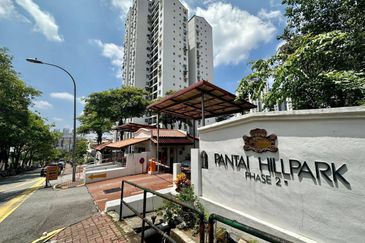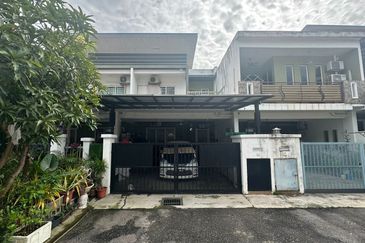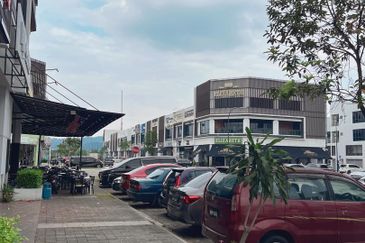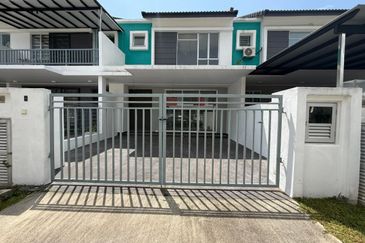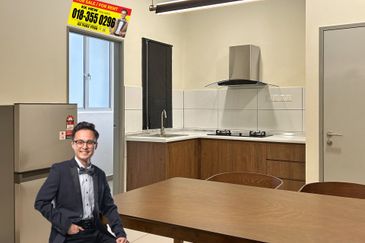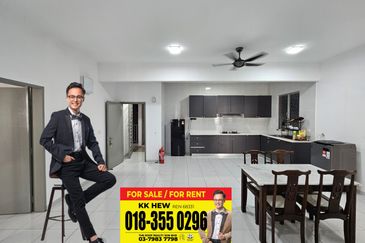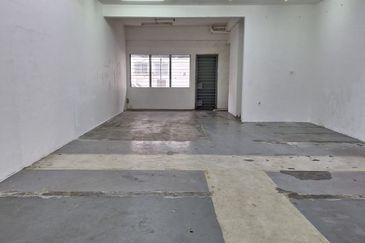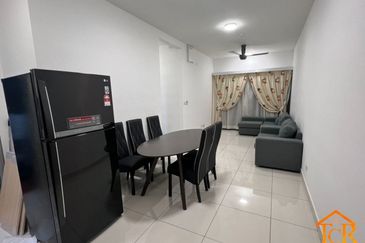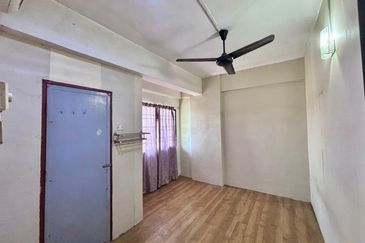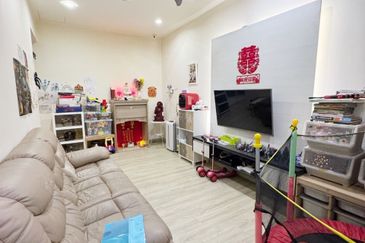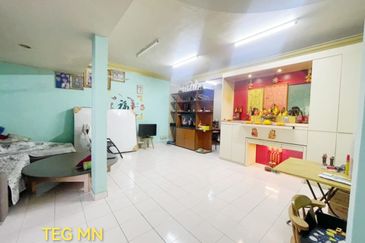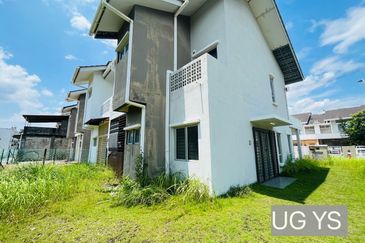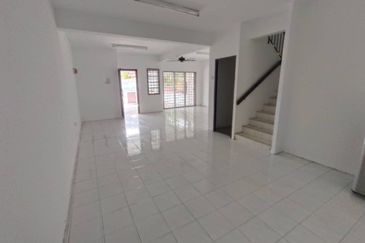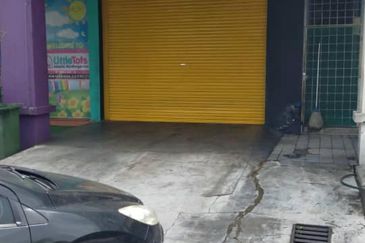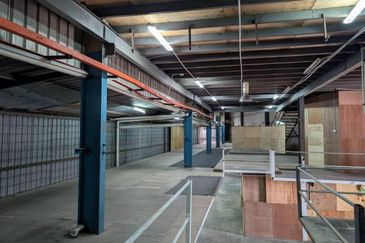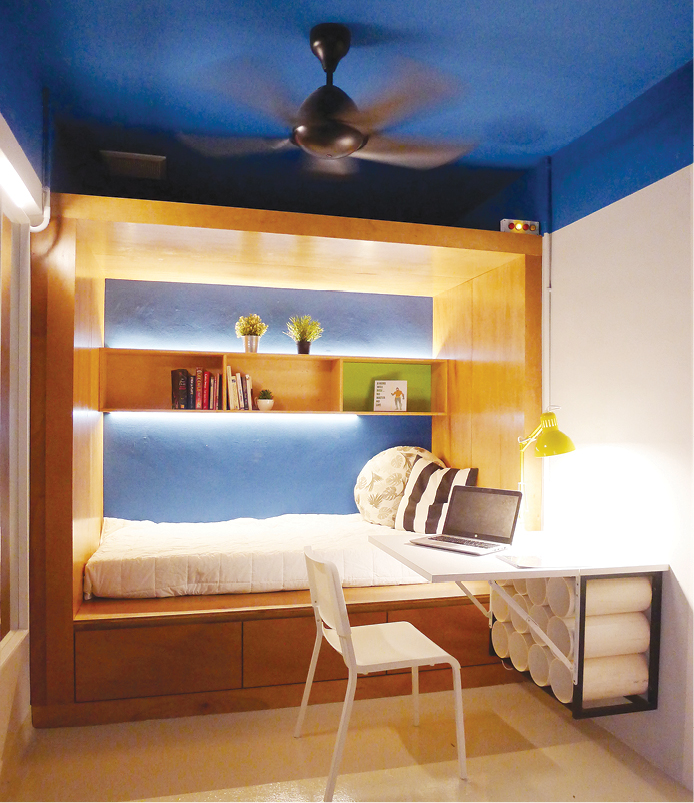
According to hosting website coliving.com, a co-living space is shared housing designed to support a purpose-driven life and a modern urban lifestyle that value openness, sharing and collaboration. Co-living also enables sustainable lifestyles through sharing and efficient use of resources and spaces.
L.ve Space is one of the latest entrants in the co-living space scene in Malaysia. Its maiden project is a quaint dwelling nestled in the bustling commercial district in Taman Tun Dr Ismail (TTDI), Kuala Lumpur.
Its vision is to foster a sense of connectivity and community among urban Malaysians while offering a space close to the city and their workplaces.
And that means L.ve TTDI is highly accessible and surrounded by amenities. It is situated on the second floor of a shoplot on Persiaran Zaaba with a bar on the ground floor and plenty of F&B outlets along the same row.
The 1,800 sq ft shoplot is rented by L.ve Space and was handed over to them in mid-July. L.ve TTDI was launched on Aug 24 with an open house event.
As of October 2019, L.ve TTDI, which offers seven rooms in total — four with double beds and three with single beds — has been fully occupied.
L.ve Space is the brainchild of five people. Victor Chua dabbled in the property sector for 20 years serving as a director of a main board -listed company and then in a boutique property development firm specialising in joint ventures with landowners.
Gary Wong and Wilson Sng are partners in their own respective architectural practices in Kuala Lumpur while Atan Mustaffa is a partner in a legal firm and Kee Ming Yu is a technopreneur.
A sense of community
The founders opted to establish a space in TTDI as it is a well-established and matured neighbourhood. “TTDI has all the ingredients we feel are important in making city-living both practical and enjoyable. For a start, it is close to the heart of the city and within walking distance to public transportation,” Chua tells EdgeProp.my.
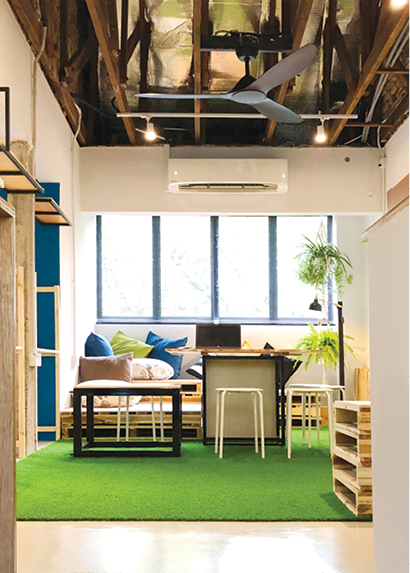
“Within TTDI there is a vibrant mix of great restaurants offering a wide variety of cuisines and more than a dozen cosy cafes. Other amenities include banking services, medical facilities and also grocers.
“For recreation, there is a beautiful park which many KLites visit for morning runs and a performing arts centre that does shows periodically. Also nearby, you have 3 Damansara and Glo Damansara malls,” adds Chua.
According to Chua, TTDI’s vibrancy is no coincidence, as it was conceived not just as a housing scheme but “as a social statement of bringing Malaysians of various races together in pleasant communities”.
L.ve was envisioned by a desire to redefine the way young people live. “We believe living in the city should be fun and fulfilling. So we think about breathing life into the usually dull spaces. We think beyond the aesthetics of the space to make it the most comfortable for interaction.
“Finally we endeavour to make our spaces self-contained with all the trappings needed to provide a comfortable living environment,” relays Chua.
On tenant screening and selection, he says: “We look for people with a sense of community. That’s important to us. You don’t have to be an extrovert but you should have an appreciation for what being a part of a community can mean for your personal growth and enrichment.
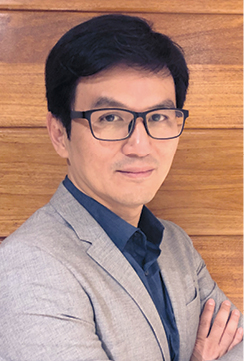
“We appreciate tenants who have a sense of adventure and are willing to try new things. Last but not least, we are looking for those who have a healthy respect for others and appreciate that we are all different in one way or another.
“The target segment are working professionals aged 25-35 years old. We even have a 40-year-old architect on board.”
Sustainable and multifunctional dwelling
L.ve TTDI strives to be environment-friendly. Certain items used in the space are recycled materials. The rooms have ample storage spaces, built-in wardrobes and a work desk. The rooms come equipped with air-conditioning and a ceiling fan. They are also equipped with integrated USB charging points, ambient lighting and washroom indicator lights. Bed linen, blankets, pillows and clothes hangers are provided as well.
“We recognise that people need a balance between interaction and private time so we’ve designed the bedrooms to allow our residents to work and entertain without leaving their rooms. Our spaces are fun yet functional. Recognising that the space is small, we have designed the spaces to be multifunctional,” says Chua.
An introductory rate of RM800 per month for a short-term stay of three to six months were offered upon launching. This rate could be subject to revision in the future.
“We are targeting RM1,000 (per month). As for longer-term stays, we do allow for one year but with three-month blocks. However, we focus on short term rentals of three months to enable us to build a community — we want more and more people to experience co-living and its community element,” Chua explains.
Co-living in the future
“We have seen, through the success of companies like Uber and WeWork that millennials are embracing what is known as a sharing economy. Co-living will be a part of that millennial trend.
“If there are already alternative forms of accommodation for travellers provided by companies like Airbnb, why not create a new form of living for locals that makes sense from a cost and desirability standpoint?

“Our rates cover the furnishings, consumables plus utilities. When you add all these up, the rate is comparable to a standard [rental] unit in TTDI,” Chua notes.
Going forward, the start-up hopes to take on larger projects in collaboration with property owners who require solutions for their spaces from a yield and sustainability point of view.
“We believe co-living offers solutions for both property owners and home-seekers that make sense,” Chua declares.
This story first appeared in the EdgeProp.my pullout on Nov 15, 2019. You can access back issues here.
TOP PICKS BY EDGEPROP
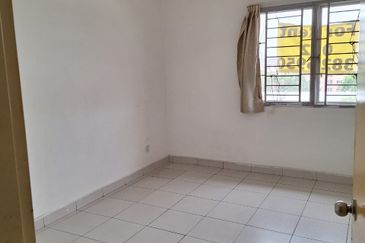
Pangsapuri Akasia, Bandar Botanic
Bandar Botanic/Bandar Bukit Tinggi, Selangor
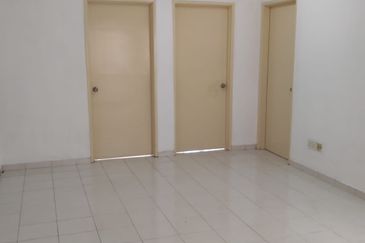
Pangsapuri Palma
Bandar Botanic/Bandar Bukit Tinggi, Selangor
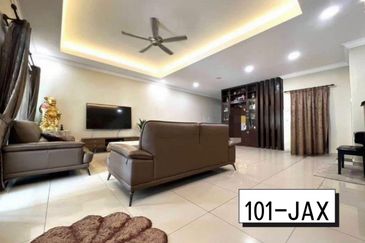
Ambang Botanic
Bandar Botanic/Bandar Bukit Tinggi, Selangor
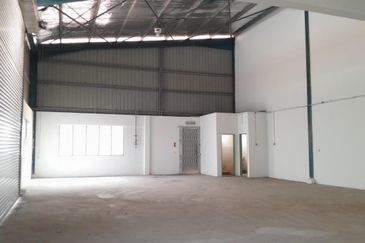
Bandar Seremban Industrial
Seremban, Negeri Sembilan


